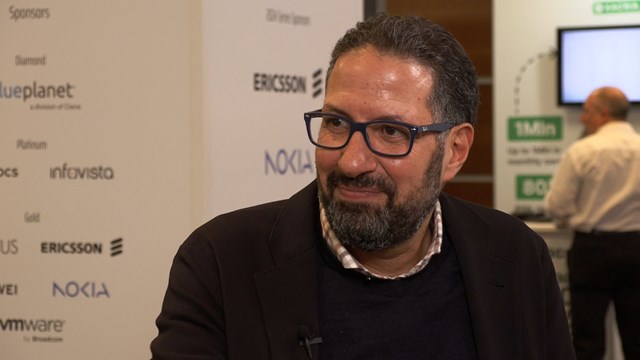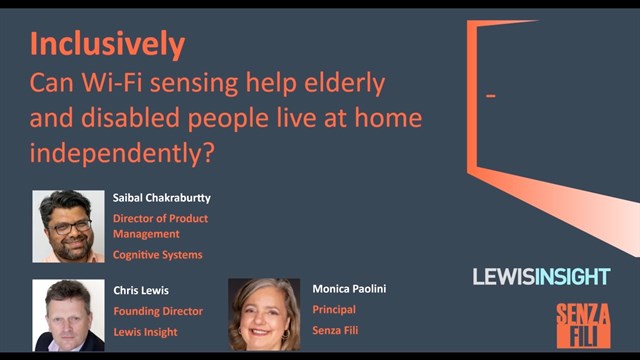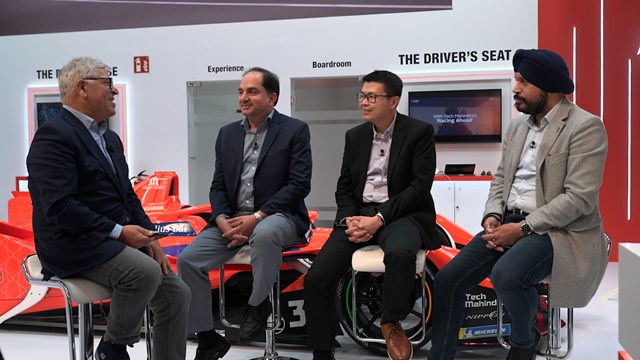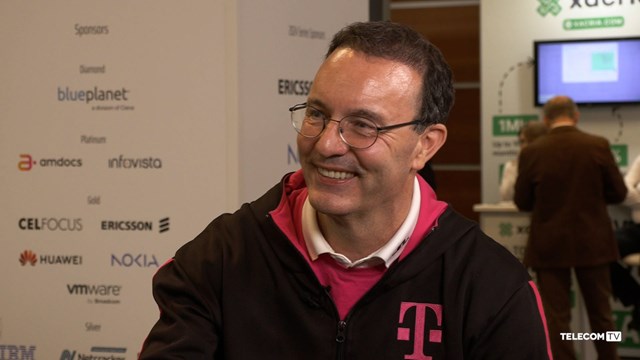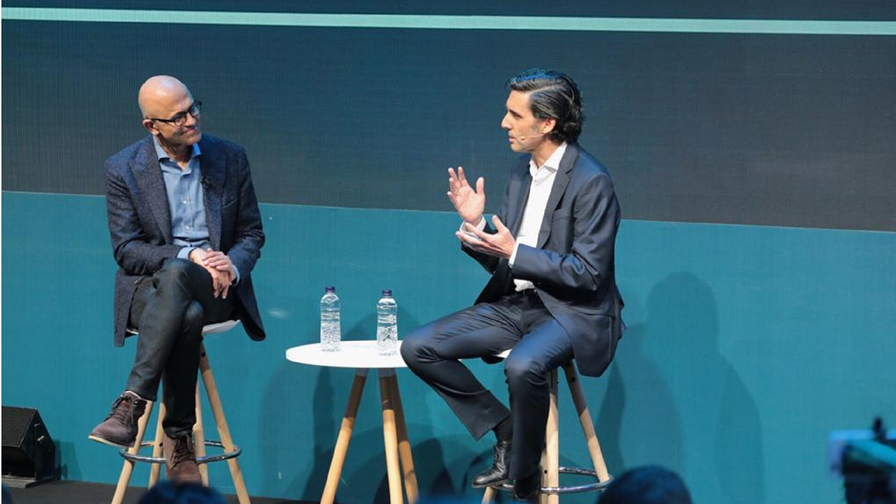
© Telefonica
- Telefonica to extend AI-based customer care 'Aura' to new markets
- Aims to build on Aura with 'Home as a Computer' vision
- Extends partnership with Microsoft to look at blockchain, 5G, edge computing
Telefonica is already using artificial intelligence to improve its customer service in various markets around the world, but the same technology could also help it create stickiness with its customers and get into their homes, putting it in competition with digital assistants from the likes of Google and Amazon.
The Spanish operator has made much of its fourth, cognitive, platform over the past couple of years, and of its desire to become a platform company. A year ago launched Aura, its digital assistant powered by Microsoft Azure, that it is using to power certain customer care and in-home applications. It has now extended its partnership with Microsoft to explore further development of those offerings, as well as further the ongoing virtualisation and softwarisation of its networks.
"The next phase of our partnership...where you want to build an Aura ecosystem for the home, that's a place where a lot of your own R&D and our R&D can come together to change the game," said Microsoft CEO Satya Nadella as he and Telefonica chief executive José María Álvarez-Pallete announced the new deal at MWC this week.
As part of its Home as a Computer (HaaC) vision, which has Aura at its core, Telefonica is developing what it terms Living Apps. The telco has developed its own connected car, smart WiFi and home cloud apps, and is also working with third parties, including football team Atletico Madrid, department store El Corte Ingles, and Air Europa, to name a handful. It is working on specific use cases, rather than migrating mobile and Web apps wholesale into consumer's homes.
"This Home as a Computer ecosystem is open," enabling Telefonica to work with different partners to create the experiences customers want in their homes, said Chema Alonso, Telefonica's chief data officer.
It is tempting to look at Telefonica's vision in the context of a 'me too' offering, in the same way telcos have for years attempted to mimic what the Internet companies are able to provide, albeit often some years behind. But in fact there is a real opportunity here for the telco.
Who do you trust?
Telefonica has a massive customer base – over 336 million at the end of last year – which, coupled with the right approach to technology and partnering, should be a significant asset.
While many consumers are happy to 'be the product' and invite the likes of Google and Amazon into their home, there are also increasing worries over security and what these companies are doing with their data. There have been a number of stories of Amazon's Alexa purchasing unwanted items, for example, while the microphone hidden in Google's Nest home security device that came to light this month once again raised privacy concerns.
Trust is "sacred" for Telefonica, Álvarez-Pallete said. "People need to trust technology, and not everything technology can do will be acceptable for citizens, for societies."
Funnily enough, Nadella agreed, describing trust as "the operative word," highlighting privacy, cyber-security and AI ethics as key areas of focus.
That is not to say that telecoms operators have an infallible trust relationship with their customers – far from it, in many cases – but they do have brand strength, existing billing relationships and the like that could give them the edge.
And Telefonica's customers are already building relationship with Aura, which is forming a growing part of its customer care strategy.
Telefonica is using Aura for customer care in six countries, via customer care apps, call centres, social networks, retail outlets and so on; it is used in 30 channels, generating 6 million monthly conversations and 30 million customer interactions to date. One of its most advanced markets is Brazil, where Aura has racked up more than 20 million interactions since its launch a year ago, according to Christian Gebara, new CEO of Vivo, Telefonica's Brazilian operation.
Aura is a big part of Vivo's customer care app and its usage in the call centre is increasing. 22% of call types from prepaid users – including queries about promotions, data balance and allowances, and problems connecting to the Internet – can be handled by Aura, which boasts a resolution rate of 70% and customer satisfaction in excess of 90%, he said.
"Aura is making our customer experience more humanised, more personalised in real-time interactions," Gebara said. "We are confident that it's going to help us to be even more digital, more profitable, with a better customer experience and satisfaction."
Buoyed by the success of the system, Telefonica plans to roll out Aura to an additional three countries this year, increasing the number of channels to more than 50 and predicts Aura interactions will number 120 million in 2019. That's a double win for the telco: extending its customer care capabilities and reducing customer care cost, while also building up customers' familiarity with Aura.
But the tie-up with Microsoft is about more than customer service and in-home apps.
In a press release that was a little light on hard detail, Telefonica and Microsoft said they will together "expand the use of Azure Cognitive Services for customer engagement and business processes, create new AI-powered, in-home experiences for customers and explore the use of intelligent technologies to transform the network."
On that last point, the companies said they will "explore working together" to look at opportunities around using AI, blockchain, 5G and edge computing to "transform services and build the network of the future."
The language used might be a bit fluffy, but Telefonica appears to be making the right noises when it comes to establishing itself in the new digital world.
Email Newsletters
Sign up to receive TelecomTV's top news and videos, plus exclusive subscriber-only content direct to your inbox.

